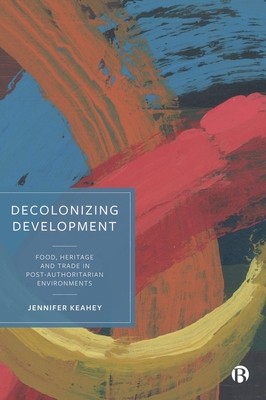
- We will send in 10–14 business days.
- Author: Jennifer Keahey
- Publisher: Bristol University Press
- ISBN-10: 1529224365
- ISBN-13: 9781529224368
- Format: 15.6 x 23.4 x 1.3 cm, hardcover
- Language: English
- SAVE -10% with code: EXTRA
Reviews
Description
Post-Soviet Latvia and post-apartheid South Africa are far apart geographically and yet have endured a similar history of colonial and authoritarian rule before transitioning to democracy at the end of the 20th century. This book examines these two nations in an unusual comparative study of post-authoritarian efforts to decolonize agricultural production and trade. The book combines an analysis of political economy and ecocultural heritage to unpack the dynamics shaping alternative trade. It also connects world systems thinking with comparative indigenous knowledge to articulate a decolonial theory of sustainable development. Conclusions and insights drawn are timely and important for a planet confronted by crises such as authoritarianism, laissez-faire capitalism, climate change and the COVID-19 pandemic.
EXTRA 10 % discount with code: EXTRA
The promotion ends in 18d.15:11:54
The discount code is valid when purchasing from 10 €. Discounts do not stack.
- Author: Jennifer Keahey
- Publisher: Bristol University Press
- ISBN-10: 1529224365
- ISBN-13: 9781529224368
- Format: 15.6 x 23.4 x 1.3 cm, hardcover
- Language: English English
Post-Soviet Latvia and post-apartheid South Africa are far apart geographically and yet have endured a similar history of colonial and authoritarian rule before transitioning to democracy at the end of the 20th century. This book examines these two nations in an unusual comparative study of post-authoritarian efforts to decolonize agricultural production and trade. The book combines an analysis of political economy and ecocultural heritage to unpack the dynamics shaping alternative trade. It also connects world systems thinking with comparative indigenous knowledge to articulate a decolonial theory of sustainable development. Conclusions and insights drawn are timely and important for a planet confronted by crises such as authoritarianism, laissez-faire capitalism, climate change and the COVID-19 pandemic.


Reviews